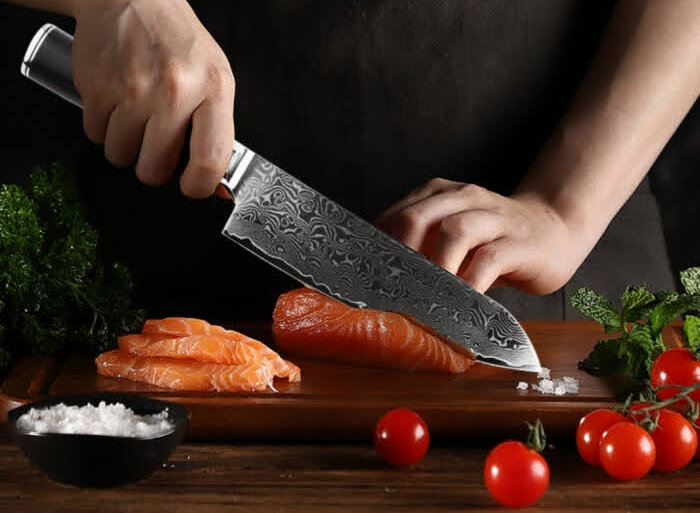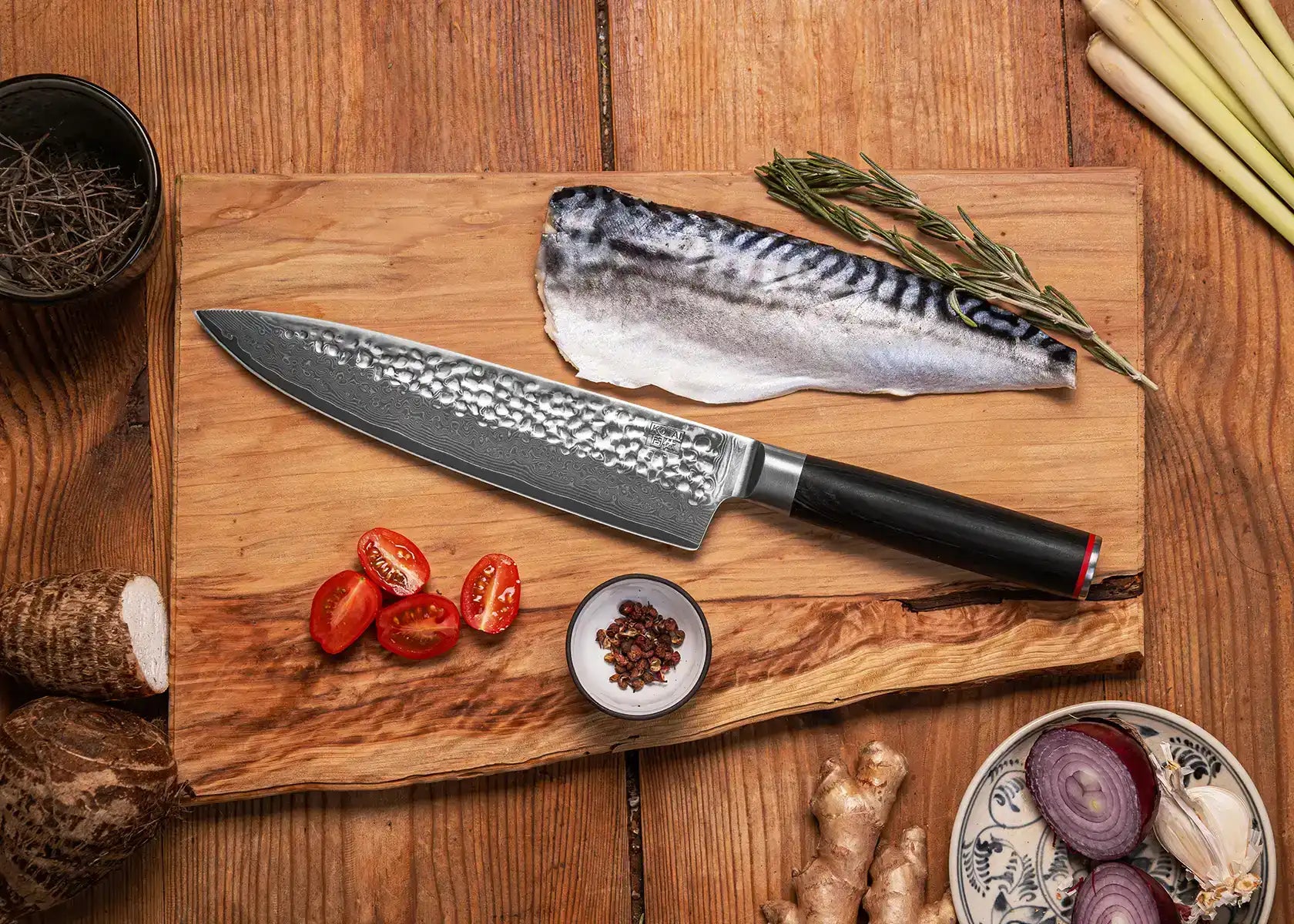For kitchen professionals and culinary enthusiasts, the allure of a perfectly forged blade is undeniable. At the heart of this enchantment lies the twist pattern Damascus knife, a marvel that blends artistry, tradition, and functionality. Renowned for its intricate design and superior performance, this knife not only serves a practical role but also elevates the culinary experience.
Crafting a twist pattern Damascus knife is an ancient art form that has captivated blacksmiths and bladesmiths for centuries. The 'twist pattern' refers to the unique, swirling design achieved by manipulating the steel during the manufacturing process. This effect is not merely aesthetic; it also enhances the blade's strength and durability.

The Intricacies Behind the Twist Pattern
The origin of Damascus steel is steeped in history, with roots tracing back to as early as 300 AD. Named after the city of Damascus, Syria, where the forged swords were historically traded, the steel was highly sought after for its resilience and sharpness. The twist pattern is achieved through a meticulous process involving folding and twisting various types of steel. This results in not only the iconic visual aesthetic but also a fusion that retains a razor-sharp edge.
What defines the twist pattern is the way the layers are twisted around one another, creating a spiraling effect along the blade's surface. This design requires a precise balance of temperature, pressure, and timing to achieve the desired look and strength, making it one of the most challenging and revered patterns to craft.
Why Choose a Twist Pattern Damascus Knife?
For a kitchen professional, investing in a knife that combines both function and form is crucial. A twist pattern Damascus knife stands out not just for its aesthetic appeal but for its practical advantages. The layered steel construction imparts remarkable hardness, allowing for a sharper edge than typical kitchen knives. This means food preparation becomes more efficient, requiring less effort with each cut.
The unique properties of Damascus steel also lead to increased rust resistance and durability, which are essential for any professional kitchen environment. The distinctive patterns on each blade ensure that no two knives are alike, allowing chefs to express their personality through their tools.
Maintaining Your Twist Pattern Damascus Knife
Proper care plays a pivotal role in preserving the beauty and functionality of a twist pattern Damascus knife. Regular maintenance includes hand washing the blade with mild soap and warm water, promptly followed by drying it with a soft cloth. Avoid harsh abrasives or dishwashers that can damage the intricate patterns and reduce the blades lifespan.
Sharpening and Honing
It's imperative to keep the blade sharp to retain its cutting prowess. Regular honing with a steel hone will help maintain the edge, while professional sharpening should be sought periodically for optimal results. A good practice is to store the knife in a knife block, sheathe, or magnetic strip to protect the edge.
Comparing the Craftsmanship
While the twist pattern is captivating, other Damascus patterns offer varied aesthetics and qualities. For instance, professionals might be interested in the Feather Damascus knife or the Ladder Damascus knife, each boasting unique forging techniques and visual appeal.
Exploring these options further can guide kitchen professionals to select a knife that truly complements their cooking style and requirements.
Conclusion
The allure of a twist pattern Damascus knife extends beyond its stunning appearance. For those in the culinary field, it is a testament to precision, skill, and tradition. Choosing such a knife means investing in a piece of history and craftsmanship that translates seamlessly into professional settings.
The choice of brand can significantly influence the quality of a Damascus knife. Thus, understanding the intricate details and care involved ensures that professionals can make an informed decision that enhances their culinary work.

FAQ
What makes Damascus steel so special?
Damascus steel is known for its distinct patterns and superior strength. The process of folding and forging different steels results in blades that are incredibly sharp and resilient.
Can Damascus knives rust?
While Damascus steel is more resistant to corrosion than other types of carbon steel, it is not completely rust-proof. Regular maintenance and proper storage are crucial to prevent rust.
Where can I learn more about Damascus steel?
For those interested in the history and science behind Damascus steel, visiting sites like this one provides a wealth of fascinating information.
This article contains affiliate links. We may earn a commission at no extra cost to you.


























